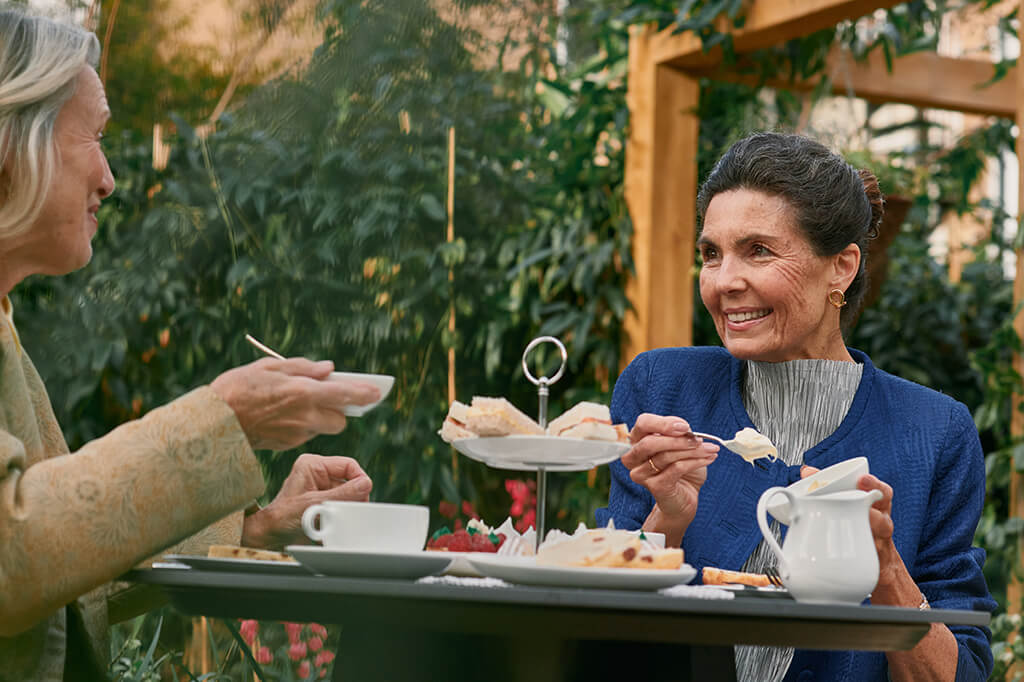Choosing the right care for a loved one is never easy. Naturally, the instinct is to keep them in familiar surroundings for as long as possible. A favourite armchair, the smell of the family kitchen, the photos on the mantelpiece; home offers a sense of identity, connection and continuity. However, when care needs escalate, the comforts of home may not be enough.
In-home care can seem like the most personal option, but families soon discover that it comes with hidden challenges- logistical, emotional and even financial. Many of these difficulties are not openly discussed, yet they shape the daily experience for both the person receiving care and their relatives.
What Home Care Doesn’t Show You
At first glance, arranging for a carer to visit your loved one at home feels straightforward. Yet over time, what seemed like a simple solution can evolve into a complex, sometimes unsustainable responsibility. The routine may work during periods of stability, but ageing is rarely linear.
Some of the most common challenges families encounter with home-based care include:
- Fragmented support: Personal carers often do not provide medical oversight, meaning additional professionals must be arranged separately (nurses, physios, mental health specialists etc.).
- Reliance on individuals: Continuity of care is dependent on the availability, health and reliability of one or two people.
- Home adaptations: Many properties are not designed for limited mobility or cognitive decline- staircases, bathrooms and flooring often require costly modifications.
- Isolation: Outside of visits from carers or family, days can become long, unstimulating and disconnected from the wider world.
- Strain on family: Managing rotas, appointments, medications and crises can quickly consume a relative’s time and emotional energy.
What’s more, few families speak openly about the emotional consequences. The pressure to ‘keep going’ for the sake of a parent or partner can be immense- and the desire to “do the right thing” often leaves little room to admit when something is no longer working.
Why True Luxury Care Is About More Than Décor
A luxury care home is not simply a comfortable place to live. Nor is it a clinical facility disguised in fine furnishings. It is a considered environment where every element including service, space, team and routine, is designed to improve life.
At Loveday, the experience is carefully curated. Each Member enjoys a private suite, individually styled and fully equipped for later-life living. From beautifully presented meals to tailored wellness programmes, the day is rich in opportunity, not limited by circumstance.
The difference lies in integration. Rather than juggling multiple services or chasing down specialists, everything is delivered in one place, by people who know your loved one well.
Luxury care provides:
- Expert-led support: Nurses, therapists and carers work collaboratively, not in isolation.
- Structured enrichment: Daily activities, from art and music to cultural outings, are designed to stimulate and engage.
- Discreet oversight: Health changes are noticed early, thanks to subtle monitoring and experienced teams.
- Social belonging: Members are part of a vibrant environment where friendships flourish.
This holistic approach is difficult to replicate at home, however well-intentioned the effort. And it’s not about grand gestures, it’s about thoughtful, everyday details that preserve lifestyle and routine, even in the presence of complex needs.
More Than Maintenance: Living Well, Every Day
The objective of care shouldn’t be just to get through the day. It should be about elevating the every day. Loveday’s philosophy centres around the belief that later life can still be full of meaning, enjoyment, enrichment and achievement.
Meals become shared experiences and social occasions. Therapies are aligned to personal interests and goals. Cultural partnerships bring a constant flow of conversation and creativity. Whether your loved one is living with memory loss, recovering from illness, or simply navigating the changes that ageing brings, they are never reduced to a list of needs.
A typical day at Loveday might include:
- A freshly prepared breakfast served in a private suite or elegant dining room
- A physiotherapy session tailored to individual mobility goals
- A visit from a local artist or musician as part of our cultural programme
- Afternoon tea shared with friends and visiting family
- A cinema screening, musical performance or therapeutic workshop
This rhythm and variety make an extraordinary difference, not just to physical wellbeing but to mood, confidence and quality of life.
Luxury meets Functionality
Luxury care homes are built with discreet features to improve health outcomes, but without the sterile or institutional feel that many associate with traditional care. At Loveday, we truly believe that design matters. Every space, from reception areas to private rooms, is created to be both beautiful and functional.
Features include:
- Flooring that reduces the risk of slips and falls
- Lighting that supports visual perception and circadian rhythm
- Subtle wayfinding cues for those living with memory loss
- En-suite bathrooms that combine accessibility with aesthetic elegance
This is not about hiding care; it’s about delivering it seamlessly. Your loved one can navigate their environment with confidence, comfort and a sense of ownership that is often lost in hospital-style care settings.
A More Sustainable Solution
When evaluating long-term care options, cost is naturally a consideration. Private home carers may appear more affordable on paper, but this rarely accounts for the full picture. Hiring multiple carers to ensure round-the-clock coverage, adapting the home, bringing in external health specialists and covering holiday or sickness absence can quickly escalate expenses.
In contrast, a luxury care home provides a single point of service. Everything from healthcare and hospitality to housekeeping and lifestyle programming is included. More importantly, you’re paying for consistency, removing the uncertainty that comes with incremental arrangements.
But beyond the financials is the sustainability of the lifestyle. A family cannot be on-call indefinitely. Nor should you have to become care coordinators, administrators and nurses on top of your role as son, daughter or spouse.
Time Together
One of the most profound benefits of choosing a luxury care home is the chance to reclaim your relationship with your loved one. Without the relentless list of tasks, you are free to enjoy your time together, visiting as family, not as carers.
It allows you to be more present, to listen without distraction, to reminisce, laugh and simply be, which is often what your loved one wants more than anything.
Making the Right Decision
Ultimately, the question isn’t whether home or residential care is ‘better’. It’s about recognising what kind of lifestyle is possible- and what kind of experience your loved one deserves.
If they need support not just to live, but to live well, then a luxury care home may offer what no private arrangement can: seamless services, stimulating days, expert care and a vibrant environment.
To find out more about how we can support you or your loved one, please connect with our Relationship Team.



